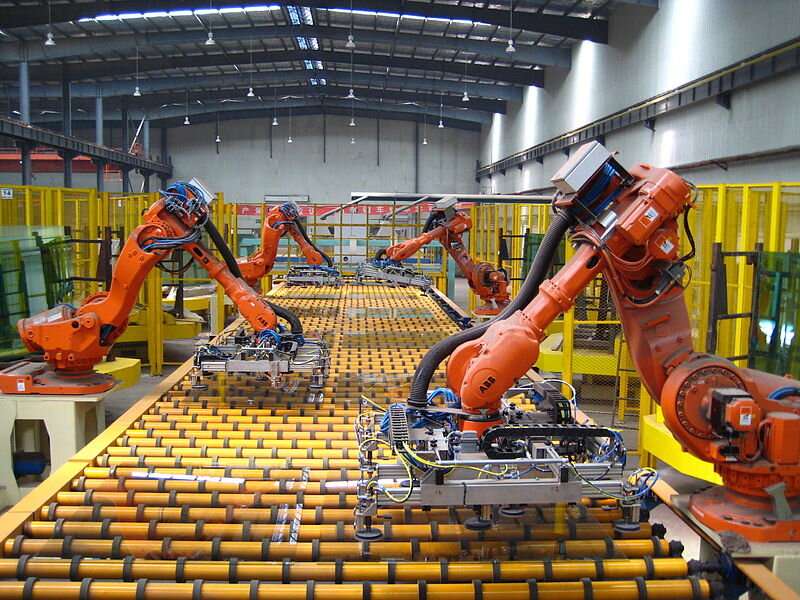Robotized Float Glass Unloading. Credit: ICAPlants/Wikimedia Commons, CC BY-SA 3.0
Employers who prioritize employee health and well-being enjoy a competitive advantage in retaining and hiring employees during what many are calling "The Great Resignation." Those investing in automation and artificial intelligence (AI) are seeing productivity gains.
However, adopting advanced technologies like AI can produce mixed or negative effects on worker well-being according to a new study by Ph.D. candidates Luísa Nazareno of Georgia State University and Daniel Schiff of the Georgia Institute of Technology.
"Automation and AI that complement labor can increase productivity, raise earnings and increase demand for skilled workers," Nazareno said. "Many see this technological relationship as a positive one, but our research shows it is not uniformly good according to several measures of worker well-being."
Nazareno and Schiff examined the skill-based technological and well-being literatures to conceptualize automation and AI's possible effects in the workplace, then used a 16-year longitudinal data set to evaluate impacts across four dimensions of well-being: worker job satisfaction, stress, insecurity and overall health.
Their findings suggest automation and AI may be associated with lower stress while also producing negative effects on worker health and mixed or negative impacts on job satisfaction, which may be associated with loss of worker meaning or increased surveillance and control by automated systems.
"These results do not support the most optimistic view of technology's impacts as a complement to workers," Schiff said. "Even the decrease in stress appears to be reversing in recent years, and these effects were concentrated on the highest-risk workers. That demands special attention."
The authors emphasize that these impacts are not predetermined, nor are they independent of the work environment in which they are adopted. Instead, how technology will impact workers is influenced by aspects of job content and context, the choices of managers and policymakers, and by broader socio-technological and economic factors.
On a policy level, "it may be insufficient to educate and train workers in the hopes that workers with skills that complement technology will ultimately fare well in the workplace," they conclude. "Scholars will have a key role in increasing decision makers' awareness and understanding of the complexities of worker well-being.
"In turn, managers, firms and policymakers can avoid assumptions of technological determinism and exercise their agency meaningfully by shaping work conditions, technological adoption and the regulation of automation and AI in the interest of worker well-being."
More information: Luísa Nazareno et al, The impact of automation and artificial intelligence on worker well-being, Technology in Society (2021). DOI: 10.1016/j.techsoc.2021.101679
Provided by Georgia State University























